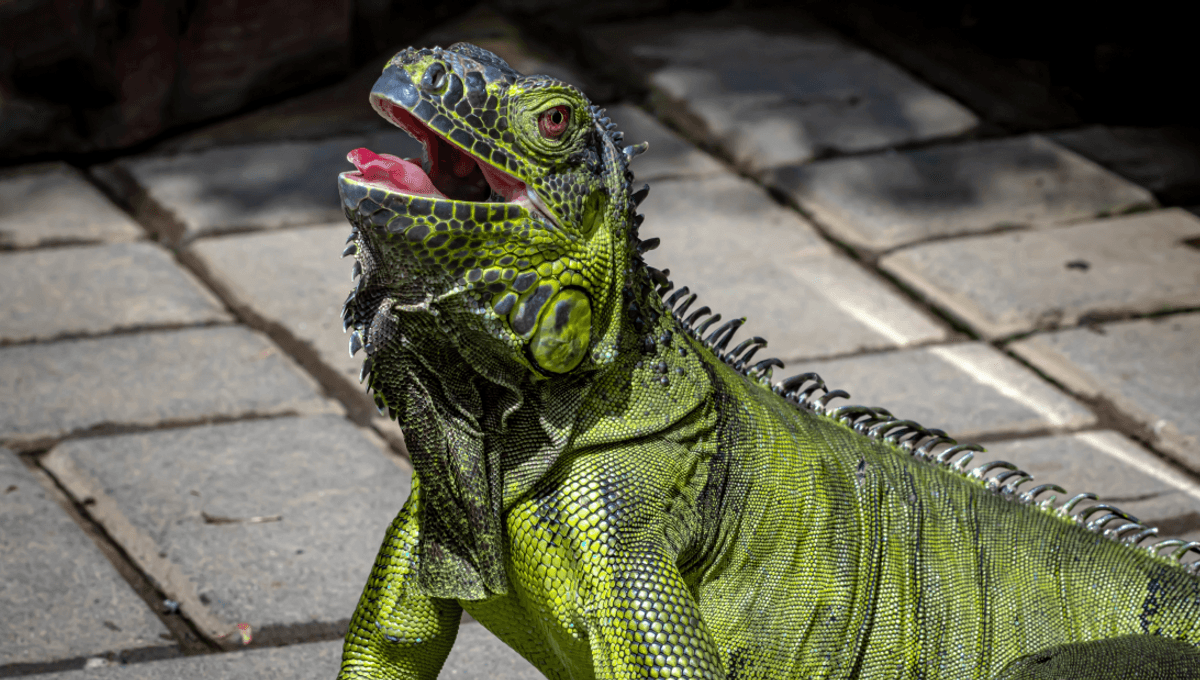
Never get between an iguana and a cake are wise words to live by according to an infectious diseases conference in Copenhagen. There, researchers warned of a cautionary tale in which a girl who was bitten by a cake-stealing iguana developed a strange bacterial infection months after it happened.
The Great Cake Heist occurred when a 3-year-old girl was enjoying a snack on the beach when an iguana ran over, bit her, and stole the food. She was treated for a bite to her left hand by a local clinic with a five-day course of antibiotics in case of salmonella, a common bacteria among reptiles.
The wound healed well but five months later developed a small bump that got larger, red, and progressively more painful for a further three months. Ultrasound imaging revealed a ganglion-like cyst, but it didn’t fit her bill of symptoms.
An orthopaedic surgeon opted to remove the lump and noticed that it was leaking puss during the operation, pointing towards some kind of infection. They conducted histological tests on the tissue that revealed tissue death, inflammation, and the presence of an unusual bacteria: Mycobacterium marinum.
The bacteria is rarely found in humans and is more commonly found in fish. It’s a non-tuberculosis mycobacterium that causes tuberculosis-like illness, but it doesn’t normally infect human hosts unless somebody goes paddling in contaminated water with a cut.
Wild and pet reptiles are known to carry harmful things like Serratia marcescens, Staphylococcus aureus, and Salmonella enterica, but M. marinum is an unexpected consequence of an iguana bite. However, it could be that these reptiles’ bodies are a good hangout for the bacteria.
“M. marinum prefers lower temperatures (30°C [86°F]) for optimal growth, and it’s highly likely that the cold-blooded iguana, with body temperatures ranging from 22-37°C [71.6-98.6°F], may sustain these microbes as reservoirs,” explained lead author Dr Jordan Mah from Stanford University School of Medicine, California, USA, in a statement.
“The bite resulted in colonisation by a bacterium rarely found in humans, and demonstrates that iguanas may be carriers of harmful bacteria capable of producing severe infections. This may help inform health care professionals of less commonly known bacterial infections following unusual zoonotic exposures.”
Once M. marinum was detected, the young girl could be given a more effective course of treatment. The bacteria is known to be resistant to common antibiotics like the amoxicillin she was initially given, but a course of rifampin and clarithromycin did the job.
Evidently, just one reptile can be a threat if you’re trying to enjoy some cake, but do you know what a group of iguanas are called?
This report is a special early release from the European Congress of Clinical Microbiology & Infectious Diseases (ECCMID 2023, Copenhagen, 15-18 April).
Source Link: Toddler Develops Strange Illness After A Cake-Stealing Iguana Bit Her Finger